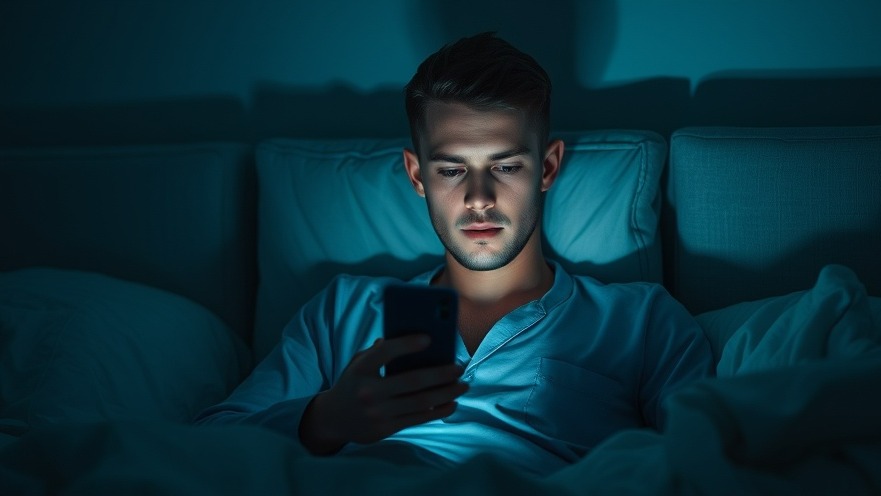
Understanding the Connection Between Screen Time and Sleep
In our increasingly digital world, it's common for people to unwind by scrolling through their phones or binge-watching shows before bed. While these habits might seem benign, research indicates that they can significantly disrupt our sleep cycles. A recent study involving over 45,000 students revealed that one hour of screen time can elevate the risk of insomnia by 59% and shorten our sleep time by an average of 24 minutes. This is crucial information for medical concierge practices striving to enhance their patients' well-being.
The Impact of Screens on Sleep Patterns
The study led by Dr. Gunnhild Johnsen Hjetland, published in Frontiers in Psychiatry, underscores that the duration of screen time before sleep is more detrimental than the specific use, whether it be social media or streaming videos. The factors disrupting sleep include notifications interrupting rest, actively engaging in screen activities that increase alertness, and the blue light emitted by screens, which can interfere with circadian rhythms. These effects disproportionately impact young adults, a demographic frequently facing sleep issues due to academic and social pressures.
Beyond the Data: Real-World Implications
For concierge medical practices focused on personalized care, understanding these disruptions can aid in advising patients about their sleep hygiene. Patients often fail to connect their late-night screen habits with their sleep troubles. This is where empathetic communication becomes vital—practitioners should encourage discussions around lifestyle changes, exploring how reducing screen time could lead to improved health outcomes.
Practical Tips for Reducing Screen Time Before Bed
As showcased in the study, there are actionable strategies patients can adopt to mitigate sleep disruption. Firstly, consider implementing a digital curfew by stopping screen use at least 30–60 minutes before bedtime. Encourage patients to create a bedtime routine that excludes screens, perhaps opting for reading a book or meditative practices instead.
Additionally, advise them to disable notifications on their digital devices during the late hours. This small change can significantly limit the interruptions that contribute to poor sleep quality. Small changes can lead to substantial improvements in their sleep hygiene, ultimately impacting their overall health.
Long-Term Benefits of Better Sleep Hygiene
Improved sleep not only benefits mental health but can also enhance physical well-being. Quality sleep aids in stress management, cognitive function, and immune system support. For concierge practitioners, fostering an environment where patients prioritize sleep can resonate positively. By understanding and addressing the role of screen time in sleep disturbances, you can equip your patients with the tools they need for better health.
Encouraging Conversations About Sleep Health
A cornerstone of concierge medicine is building relationships with patients. By initiating discussions around sleep health and the influences of modern technology, practitioners can further elevate the patient experience. Consider offering workshops or informational sessions that delve into sleep hygiene and related health benefits. This could position your practice as a leader in addressing contemporary health challenges.
In conclusion, as screens become an integral part of our nighttime rituals, understanding their effects on sleep is essential. By prioritizing conversations about screen time and providing realistic solutions, concierge medical practices can help patients reclaim their sleep and, consequently, their health. Take action today and discuss these insights with your patients, guiding them toward a more restful night.
 Add Row
Add Row  Add
Add 






Write A Comment